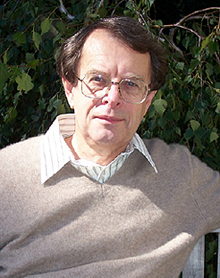Frank Prochaska, senior research fellow at Somerville College, writes about the feminisation of Britain’s monarchy and how this has strengthened its social influence.
As the political importance of the crown declined over the centuries, the royal family filled the vacuum with social work.
Indeed, the loss of political power purified the monarchy for civic and charitable purposes. By allying itself with respectable society and voluntary causes, the monarchy has reaffirmed its importance and heightened its popularity. What may be less well understood is that this shift of royal authority from political power to social influence has been largely propelled by the female members of the royal family.
Queens are easier to love than sabre-rattling kings. And since the accession of Queen Victoria in 1837, Britain has had a reigning Queen for 130 years. This has not been without an impact on the the life of the nation. So too the role of Queen consorts and other female members of the royal family, who have driven the social agenda of the crown.
One thinks of the recklessly charitable Queen Alexandra, who pressed Edward VII into opening all those bazaars. Or Queen Mary, who steered her family’s voluntary work after the First World War. Or the Queen Mother, who put charitable patronage at the very heart of her role as consort.
This is now the world inhabited by Meghan Markle, who has already shown potential as an articulate charitable campaigner. Every time a female member of the royal family appears in public, reads a few prepared words and smiles upon a crowd of children, she chalks up another notch in the mystique of monarchy.
In the nation’s transition to social democracy, the women of the royal family have made a notable difference. They have shown a decided preference for the personal over the corporate in keeping with traditional views about women being more benevolent and compassionate than men. In the process they have feminized the crown, helping to create what I have called a welfare monarchy.
The Victorian writer Walter Bagehot made the distinction between the ‘dignified’ and ‘efficient’ parts of the constitution. He celebrated the monarchy as the ‘dignified’ part but failed to notice that it was also becoming an ‘efficient’ part through its social work. And it is the monarchy’s civic purpose, which underpins our crowned republic, that is likely to keep the royal family in business.
Dr Prochaska gave a talk on the feminisation of the monarchy on October 29 at the Oxford & Cambridge Club, an event presented by the Somerville London Group. To find out more about the London group, contact Elizabeth Cooke at Elizabeth.Cooke@some.ox.ac.uk

